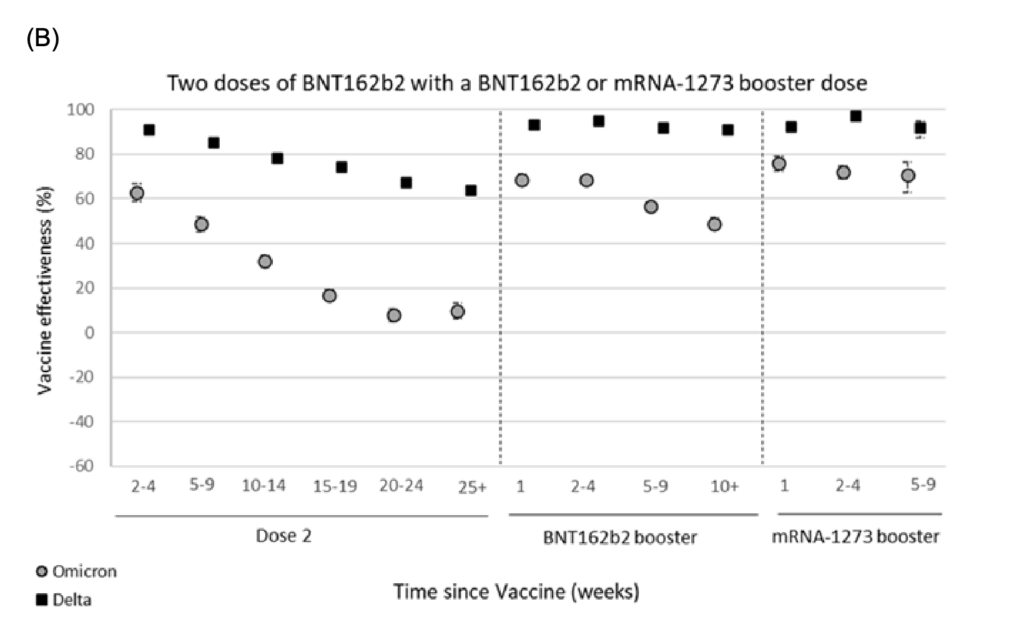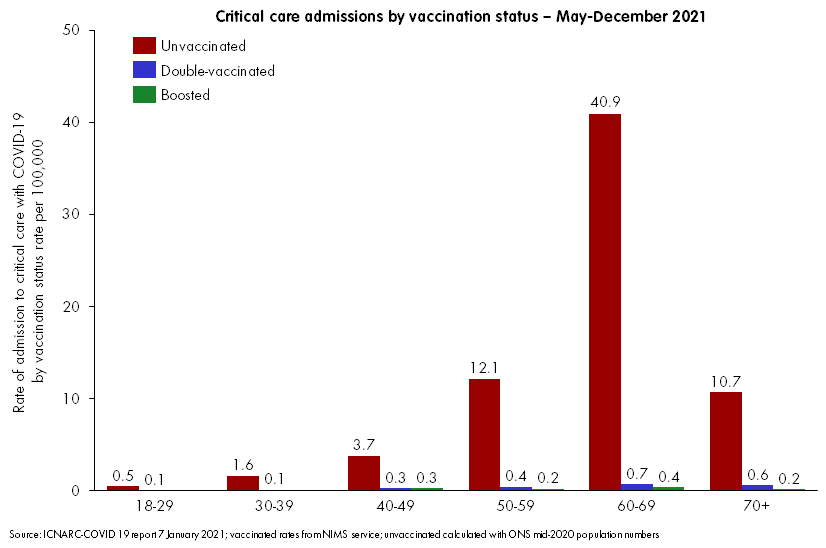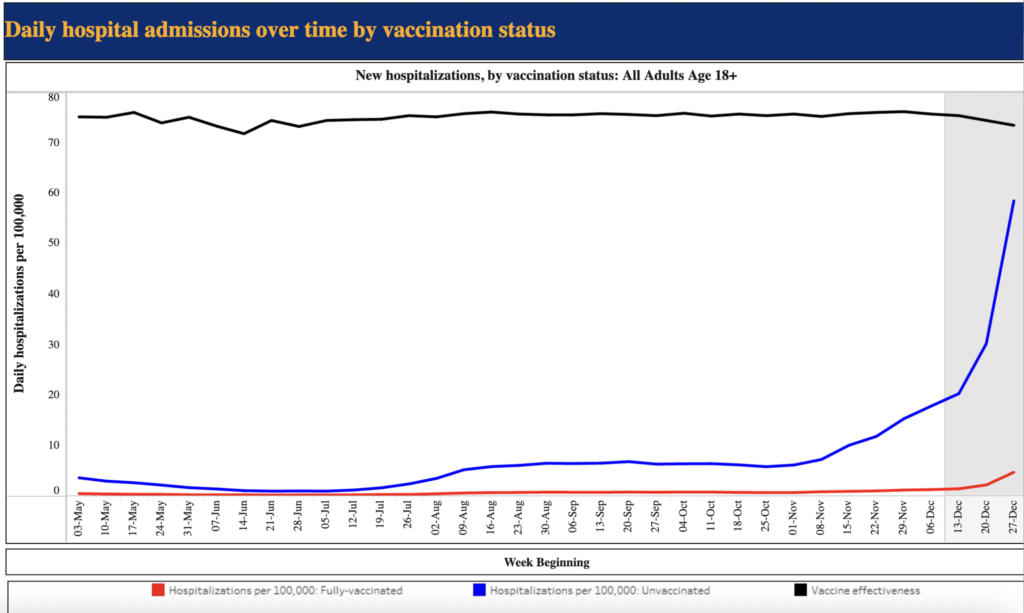A: No. COVID-19 vaccines are still acing their #1 job- preventing serious disease.
TL;DR: Omicron is better at infecting people with immunity from vaccination or prior infection. But the vaccines (especially 3 doses) still *reduce* the risk of infection with Omicron, and *dramatically* reduce the risk of hospitalization and death. Vaccination is still the best way to build immune memory SAFELY.
We’re all bummed that one source of Omicron’s “growth advantage” is immune evasion-meaning that it’s better at infecting people who already have immunity compared to previous variants. We are definitely seeing more re-infections and infections among the vaccinated than we did for Alpha or Delta.
BUT-it’s important to keep our eyes on the prize, which is to minimize the worst dangers of SARS-CoV-2. While “sterilizing immunity” that eliminates all infections (like measles) was the dream, it was not generally considered realistic by most scientists.
The more realistic goal was “de-fanging” the virus. The vaccine gives the immune system a cheat sheet for the virus so it can clobber it before you land in the hospital or die. Even if you get symptoms, protection from the worst of COVID is a huge win.
🔥Once again, we are grateful to the public health officials in the UK (UKSHA), who are releasing new data on Omicron with amazing speed, including updated vaccine efficacy (VE) estimates.
👎Bad news: two doses of vaccine seem to protect very little against *symptomatic infection* with Omicron (Figure 1).

👌Better news: Vaccine efficacy against symptomatic Omicron infection shoots back up after a 3rd dose, reaching 65%-75% in the first few weeks but waning some over time (down to 40%-50% 9+ weeks after booster). With the newness of Omicron, it will take time to see whether that protection wanes further.
👍Good news: Vaccine effectiveness against hospitalization with Omicron was 88% after 3 doses, but lower for those with only two doses: 72% if between 2-24 weeks after a second dose, and 52% if >25 weeks after the second dose. One caveat is that this estimate is for all vaccine brands combined, and many in the UK had 2 doses of the Astrazeneca vaccine which has lower efficacy in general than Pfizer or Moderna. All boosters in the UK are with Pfizer or Moderna.

New York State has also released data showing close to 90% vaccine effectiveness against hospitalization even for Omicron (Figure 3). In this data “fully vaccinated” does not necessarily include 3rd doses.

Recall that vaccine efficacy/effectiveness tells us how much less likely you are to be infected or hospitalized *compared to an unvaccinated person*, not your probability of being infected or hospitalized if exposed (for refresher see link below).
BOTTOM LINE:
The vaccines have lost some power to prevent symptomatic infections, a fact we are all seeing clearly in our daily lives.
BUT–the data are still *very clear* that vaccinated people are much less likely to be hospitalized or die with Omicron.
If you are unvaccinated, you can’t count on Omicron being “mild.”
Love,
Those Nerdy Girls
Links:
“Your vaccinated immune system is ready for breakthroughs.”
“Does 95% efficacy mean I have a 5% chance of getting infected?”
UK Vaccine Efficacy Estimates (Figure 1)
Data from INARC, UK (Figure 2)


